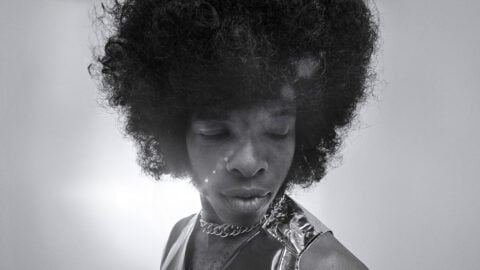Review: Ted
It seems so long ago—much longer than it actually is—when, in 1999, Family Guy first appeared and usurped The Simpsons as the funniest, best nerdily referential animated sitcom on network television. This may not seem like much in our current over-saturated media landscape, but at 14, I was aching for an alternative. Now, neither is worth watching.

<p>But it's not Nineties nostalgia that makes 13 years seem more like 25: Seth MacFarlane's media empire (Family Guy, American Dad!, The Cleveland Show) has continuously expanded without ever evolving. In some ways, his subjugation of story to gags is impressive; in other ways, it's just lazy. MacFarlane's eerily perfect formula (hot wife plus dumb guy plus sassy talking baby plus sassy talking animal) doesn't really engender emotional attachment, because it's not supposed to. They are conduits—or, more pointedly, excuses—for a few different styles of humor. Hot wife either plays the exasperated straight man or issues snarky remarks; dumb guy provides raunch and political commentary by counterexample; sassy baby and talking animal offer a mix of wit and absurdism. (It's also a hearty enough base for any pop culture parody.)
The flexibility in his formula—and the fact it privileges the man-child's point of view—makes MacFarlane a perfect candidate for writing and directing a not-actually-romantic all-guy rom-com. (This genre warrants further study if, for nothing else, the way it removes women from a genre “meant for” women.) However, it's clear that the transition from a tightly constructed 23-minute sitcom to a 106-minute feature film was difficult for MacFarlane. Though there are a number of expertly paced exchanges, extremely offensive jokes, and absurdist salvos that are laugh-out-loud funny, Ted struggles to be worth the price of admission. It is a film that seems to have an endless middle.

This is true of most of the jokes as well, which, while in line with MacFarlane's style, lack punch. A lot of the vitriol on display in his shows has been mellowed for the big screen—there is no hassling of organized religion or biting political commentary. George W. Bush does get name-checked once, which would be great were he still in office and not universally hated, even by fellow Republicans. Instead, there's an overabundance of lazy racial humor (mostly at the expense of one Chinese man) that lacks any self-awareness. While MacFarlane hasn't devolved to Leno-esque lowest-common-denominator humor, Ted doesn't feel like a revelation in the same way that the first episode of Family Guy did.
If I seem oblique while outlining my mild distaste, it is intentional. Mentioning the best gags would be the most useful way to gauge the reader's interest in undertaking Ted, but that would extinguish their effectiveness. (Like all quotable comedy, these lines are best left to in-person retellings, preferably with friends or trustworthy coworkers, while drinking.) And, as previously established, describing the plot really isn't going to provide insight. So let me leave it at this: I went in with very low expectations, but was surprised by how much I laughed. MacFarlane's not Adam Sandler—yet. Even though it's essentially identical to the one he uses for Peter Griffin, MacFarlane gives an amazing performance as the voice of Ted. And mercifully, there's only one shot-for-shot movie reference: the bar scene from Airplane! (Given the audience's reaction, I was pretty sure only four people besides me had seen the original, lending heft to the argument that such “tributes” are actually just misenterpreted as original.) But there's certainly nothing in it worth paying for. Just wait until it's on TV, I guess.







